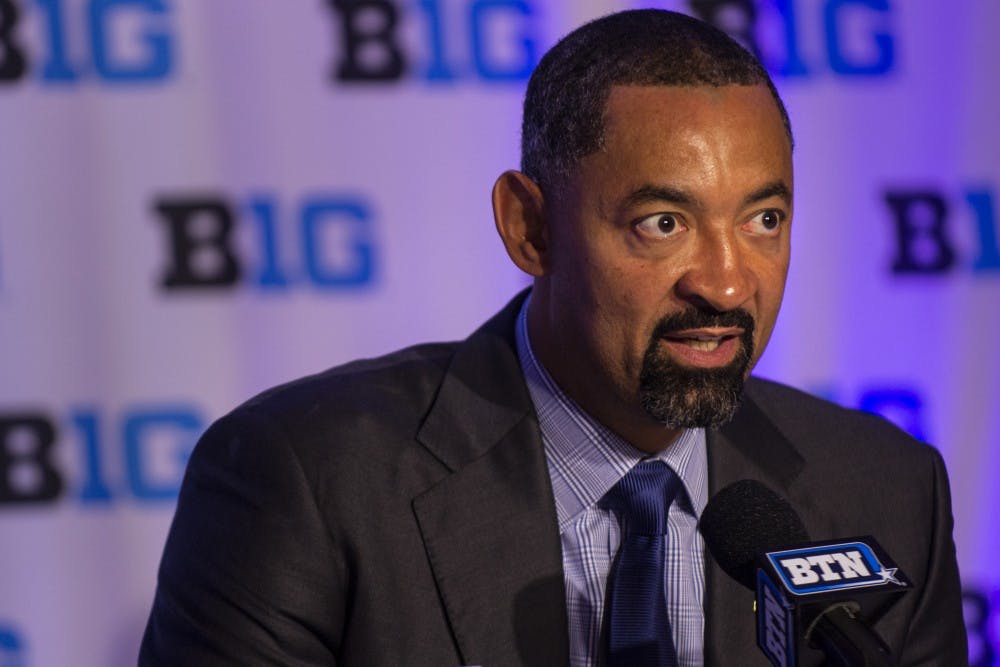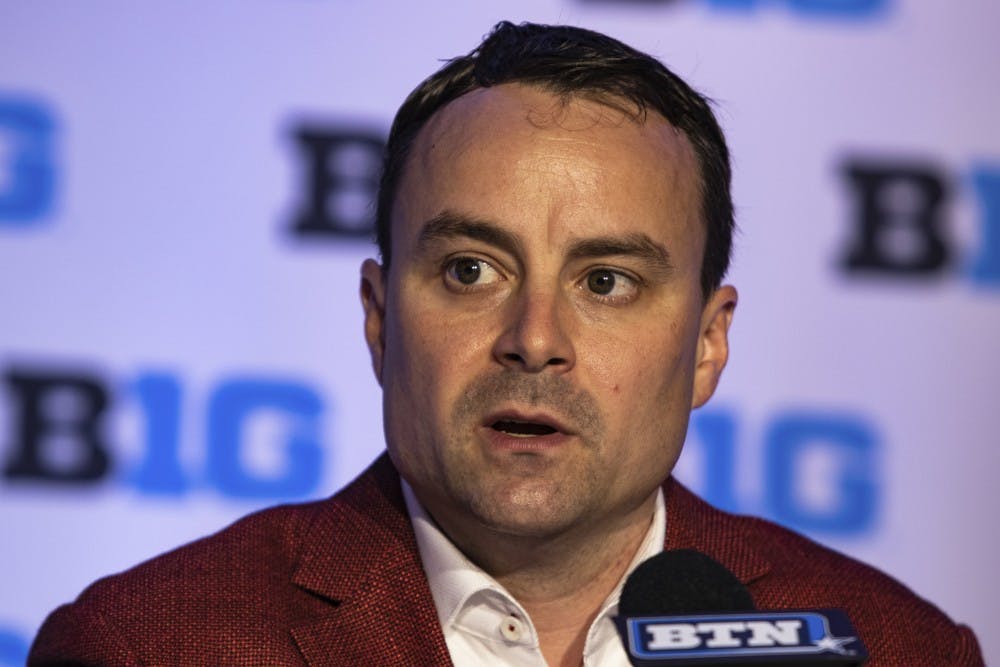It’s not rocket science, yet the NCAA wants people to believe allowing its student athletes to profit off their image, name and likeness is just as complicated. Fourteen coaches walked up on the podium during Big Ten Media Day and answered questions about the Fair Play Act, all with differing answers.
Some coaches like Michigan State head coach Tom Izzo tried to dance around the question claiming they didn’t know enough to give a response at the time. Others like Minnesota head coach Richard Pitino came out in full support of the bill.
The only thing that was cleared up is that the NCAA is living in the past. It’s terrified of what may happen to its precious “amateur” athletes if they were to come into some money benefiting from their famed statuses.
“If you’re not evolving and forward thinking, you’re standing in cement,” IU head coach Archie Miller said when asked about the Fair Play Act.
Miller’s response was one of the strongest from the coaches, seemingly calling out the way the NCAA views its student athletes. The NCAA hides behind the idea of amateurism and not allowing its players to profit off their name and likeness to preserve competitive balance as a way to boost its bottom line — profit.
Unsurprisingly, the players were all on board with the Fair Play Act. Many of the athletes didn’t see the harm in making money from building their own brand since it’s what they do anyway.
“College is all about building your brand,” Michigan State junior guard Cassius Winston said. “It’s what you do as a college athlete, build your platform and you're going to do that regardless so you might as well get paid.”
Winston is right. Players are trained to build their brand both for future personal gain but also for immediate benefit for the schools. The more recognizable players are, the more marketable they are for the university, which can make insane amounts of money off them while the player doesn’t see a dime.
A prime example of this is former Duke superstar Zion Williamson,who was a national sensation even before he came to Duke but couldn’t profit off his fame. I can’t imagine how much money Duke must have made selling Williamson’s #1 jersey last season while he didn’t get any of the profits.
Michigan head coach Juwan Howard talked about the struggles some student athletes go through not being able to profit off their personal brands.
“I’ll tell you this, my family and how I grew up, we couldn’t afford a dream pop,” Howard said. “Someone — and I don’t know who — paid for my scholarship, and I am forever in debt to those people who spent money on that scholarship.”

The NCAA drives these student athletes to create strong personal brands but doesn’t let them use it in the name of creating an even playing field.
Allowing players to profit off their name and likeness doesn’t create an imbalance in competition. Players already go to certain schools like IU because they get more exposure which helps them in the long-term. They should be able to help themselves right now.
“Like I said earlier, times are changing,” Miller said. “You have to be forward thinking when you’re dealing with young people right now because there is so much at stake. It’s natural right now to look and say, ‘is there a better way?’"




